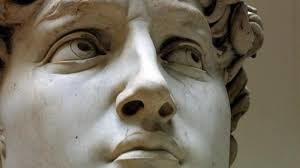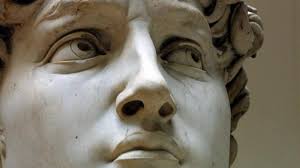
Central idea: Give glory to God by being glorious. Doctrine: God manifests his glory by sharing his goodness. Practical application: Mental prayer, heartfelt thanksgiving, and conversion.
To view Lectionary 130 click here.
Central idea: Give glory to God by being glorious
Reading 1 Sir 27:30—28:7
Wrath and anger are hateful things,
yet the sinner hugs them tight.
The vengeful will suffer the LORD’s vengeance,
for he remembers their sins in detail.
Forgive your neighbor’s injustice;
then when you pray, your own sins will be forgiven.
Could anyone nourish anger against another
and expect healing from the LORD?
Could anyone refuse mercy to another like himself,
can he seek pardon for his own sins?
If one who is but flesh cherishes wrath,
who will forgive his sins?
Remember your last days, set enmity aside;
remember death and decay, and cease from sin!
Think of the commandments, hate not your neighbor;
remember the Most High’s covenant, and overlook faults.
- Wrath, anger, vengeance, refusal to forgive, mercilessness, enmity, hatred of neighbor—these are all interrelated, overlapping evils that make us sinners in desperate need of healing from God.
- We need to let go of these understandable but evil desires, not to ‘hug them tight.’ One reason is because they are so ugly. Another is because we need to be forgiven our own sins. Just as in the Gospels, the condition for forgiveness is forgiveness.
- One thing that can help us let go of our just and unjust anger and to hate our own sins is to remember God’s just judgment coming at the end of our lives. “Death and decay” will destroy the body.
Responsorial Psalm Ps 103:1-2, 3-4, 9-10, 11-12
R. The Lord is kind and merciful, slow to anger, and rich in compassion.
Bless the LORD, O my soul;
and all my being, bless his holy name.
Bless the LORD, O my soul,
and forget not all his benefits.He pardons all your iniquities,
heals all your ills.
He redeems your life from destruction,
crowns you with kindness and compassion.He will not always chide,
nor does he keep his wrath forever.
Not according to our sins does he deal with us,
nor does he requite us according to our crimes.For as the heavens are high above the earth,
so surpassing is his kindness toward those who fear him.
As far as the east is from the west,
so far has he put our transgressions from us.
- Because we are so full of good and evil, it is hard for us to remember that God is all-good.
- God’s aim for us in our earthly life is to help us become the kind of person He and we really want us to become.
- If you think God is chiding you or he is angry with you, remember His purpose: our redemption and sanctification. God’s aim is to make us fit for eternal life.
- Glimpsing this treasure in the life to come and even beginning to experience it in this life, our right response is to “Bless the Lord” for his goodness.
Reading 2 Rom 14:7-9
Brothers and sisters:
None of us lives for oneself, and no one dies for oneself.
For if we live, we live for the Lord,
and if we die, we die for the Lord;
so then, whether we live or die, we are the Lord’s.
For this is why Christ died and came to life,
that he might be Lord of both the dead and the living.
- We did not bring ourselves into existence.
- We cannot prevent the end of our existence.
- However, the consoling good news (the Gospel) is that God thought of us, gave us actual existence, is glad we exist, wants us to exist always, and wants us to belong to him.
Gospel Mt 18:21-35
Peter approached Jesus and asked him,
“Lord, if my brother sins against me,
how often must I forgive?
As many as seven times?”
Jesus answered, “I say to you, not seven times but seventy-seven times.
That is why the kingdom of heaven may be likened to a king
who decided to settle accounts with his servants.
When he began the accounting,
a debtor was brought before him who owed him a huge amount.
Since he had no way of paying it back,
his master ordered him to be sold,
along with his wife, his children, and all his property,
in payment of the debt.
At that, the servant fell down, did him homage, and said,
‘Be patient with me, and I will pay you back in full.’
Moved with compassion the master of that servant
let him go and forgave him the loan.
When that servant had left, he found one of his fellow servants
who owed him a much smaller amount.
He seized him and started to choke him, demanding,
‘Pay back what you owe.’
Falling to his knees, his fellow servant begged him,
‘Be patient with me, and I will pay you back.’
But he refused.
Instead, he had the fellow servant put in prison
until he paid back the debt.
Now when his fellow servants saw what had happened,
they were deeply disturbed, and went to their master
and reported the whole affair.
His master summoned him and said to him, ‘You wicked servant!
I forgave you your entire debt because you begged me to.
Should you not have had pity on your fellow servant,
as I had pity on you?’
Then in anger his master handed him over to the torturers
until he should pay back the whole debt.
So will my heavenly Father do to you,
unless each of you forgives your brother from your heart.”
- When someone harms us by sinning against us, they owe us a debt, the debt of what they have taken away from us. That debt can be very great. For example, if someone robs you, he not only owes you the property taken but your current loss of the use of that item, the time lost in trying to replace it or to get by without it, and also the emotional cost for you and your loved ones of anger, fear, worry, and so forth.
- But Christ instructs us that we must forgive those who sin against us. If we do not, then our heavenly Father will not forgive our sins until we “pay back the whole debt” we owe him, a payback that, in the words of the parable, will be a tortured imprisonment.
- When we sin against God or a fellow human being, God is not hurt, but that fellow human being is hurt (and perhaps many others) and we are hurt.
- God wants us to repair that hurt.
- God also wants us to become more like him: good and magnanimous.
Doctrine: God manifests his glory by sharing his goodness
- In eternity, God thought of us. In time, he gave us actual existence. He is glad we exist. He wants us to exist always. He wills that we belong to him. And he wants us to possesses every good thing securely and always.
- The Catechism begins in this way: “God, infinitely perfect and blessed in himself, in a plan of sheer goodness freely created man to make him share in his own blessed life” (CCC 1).
- From this follows the stupendous good news: “For this reason, at every time and in every place, God draws close to man. He calls man to seek him, to know him, to love him with all his strength. He calls together all men, scattered and divided by sin, into the unity of his family, the Church. To accomplish this, when the fullness of time had come, God sent his Son as Redeemer and Savior. In his Son and through him, he invites men to become, in the Holy Spirit, his adopted children and thus heirs of his blessed life.” (CCC 1)
- Our creation and beatitude glorifies God. “Scripture and Tradition never cease to teach and celebrate this fundamental truth: ‘The world was made for the glory of God’” (CCC 293).
- What does the glory of God mean? “St. Bonaventure explains that God created all things ‘not to increase his glory, but to show it forth and to communicate it,’ for God has no other reason for creating than his love and goodness: ‘Creatures came into existence when the key of love opened his hand’” [St. Thomas Aquinas]. (CCC 293)
- The First Vatican Council further explains God’s motivation for creating:
- “This one, true God, of his own goodness and ‘almighty power,’ not for increasing his own beatitude, nor for attaining his perfection, but in order to manifest this perfection through the benefits which he bestows on creatures, with absolute freedom of counsel ‘and from the beginning of time, made out of nothing both orders of creatures, the spiritual and the corporeal’” (CCC 293).
- Thus, “The glory of God consists in the realization of this manifestation and communication of his goodness, for which the world was created” (CCC 294). Thus, God’s creatures, through their very being, glorify God.
- And more, for God’s rational creatures, God created us “to be his sons through Jesus Christ, according to the purpose of his will, to the praise of his glorious grace.” As St. Irenaeus put it, “the glory of God is man fully alive; moreover man’s life is the vision of God: if God’s revelation through creation has already obtained life for all the beings that dwell on earth, how much more will the Word’s manifestation of the Father obtain life for those who see God.” (CCC 294)
- So, “The ultimate purpose of creation is that God ‘who is the creator of all things may at last become ‘all in all,’ thus simultaneously assuring his own glory and our beatitude’”(CCC 294).
- There is a great deal to ponder in these words.
Practical application: Mental prayer, heartfelt thanksgiving, and conversion
- If God manifests his glory by sharing his goodness with all of creation, and in a unique way with us, then we can greatly benefit from contemplating this truth. So a first practical application is that we can take to our mental pray the truths drawn above from the Catechism. There are many hours of material we can consider.
- A second application is to respond to God in wonder and thanksgiving. There is no better vehicle for this than the psalm we prayed at this mass with its exhortation, “Bless the LORD, O my soul.”
- A third application is to form a determination to cooperate with God’s plan for us. Ultimately, He wants us fully alive, in possession of the beatific vision. On our part, our baby steps to do this are found in our grace-inspired and grace-assisted efforts to put sin behind us and to begin to do only good. This is our conversion or transformation in Christ.
The Homiletic Directory recommends the following Catechism points and themes for the Twenty-fourth Sunday in Ordinary Time
- CCC 218-221: God is love
- CCC 294: God manifests his glory by sharing his goodness
- CCC 2838-2845: “forgive us our trespasses”

Leave a Reply